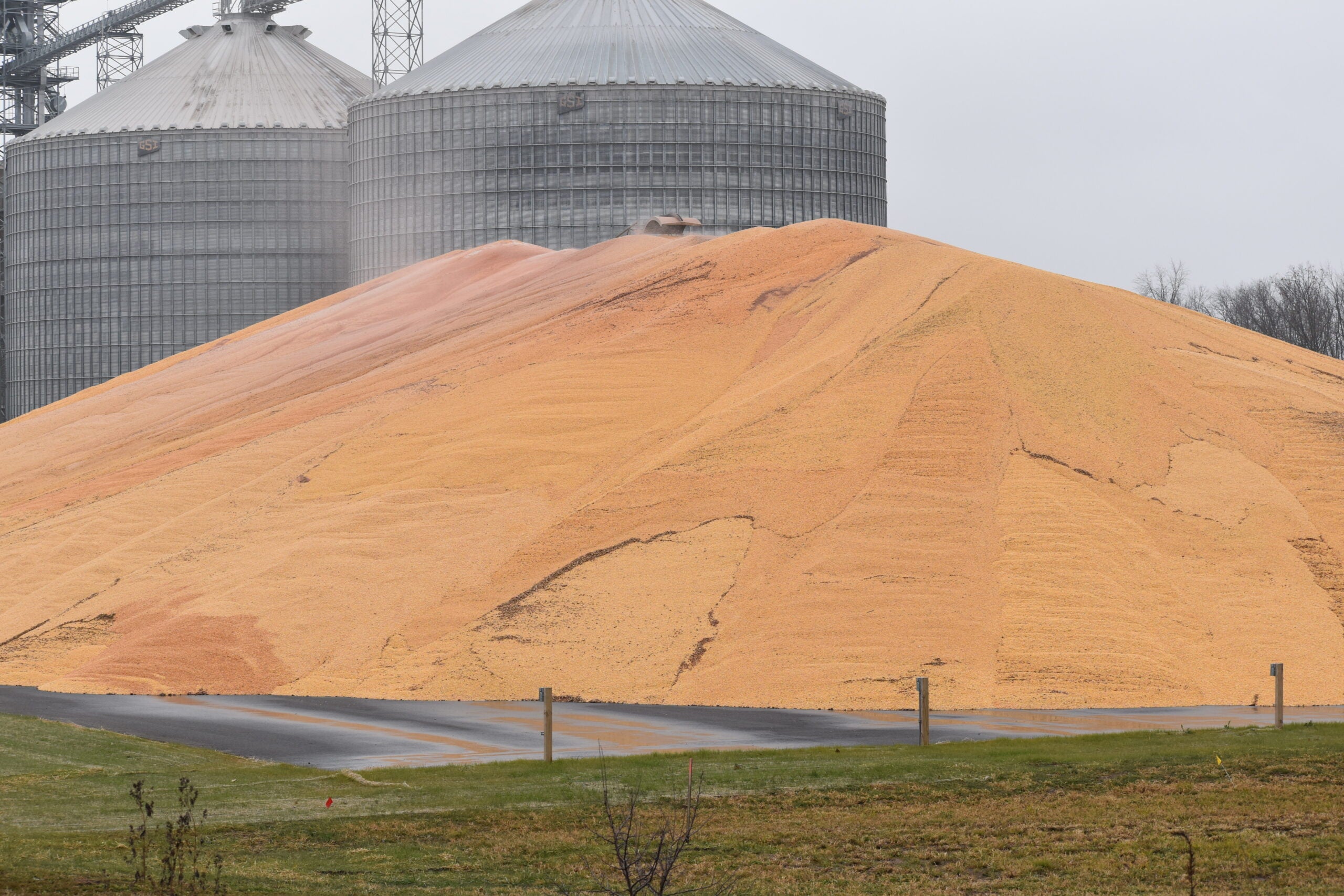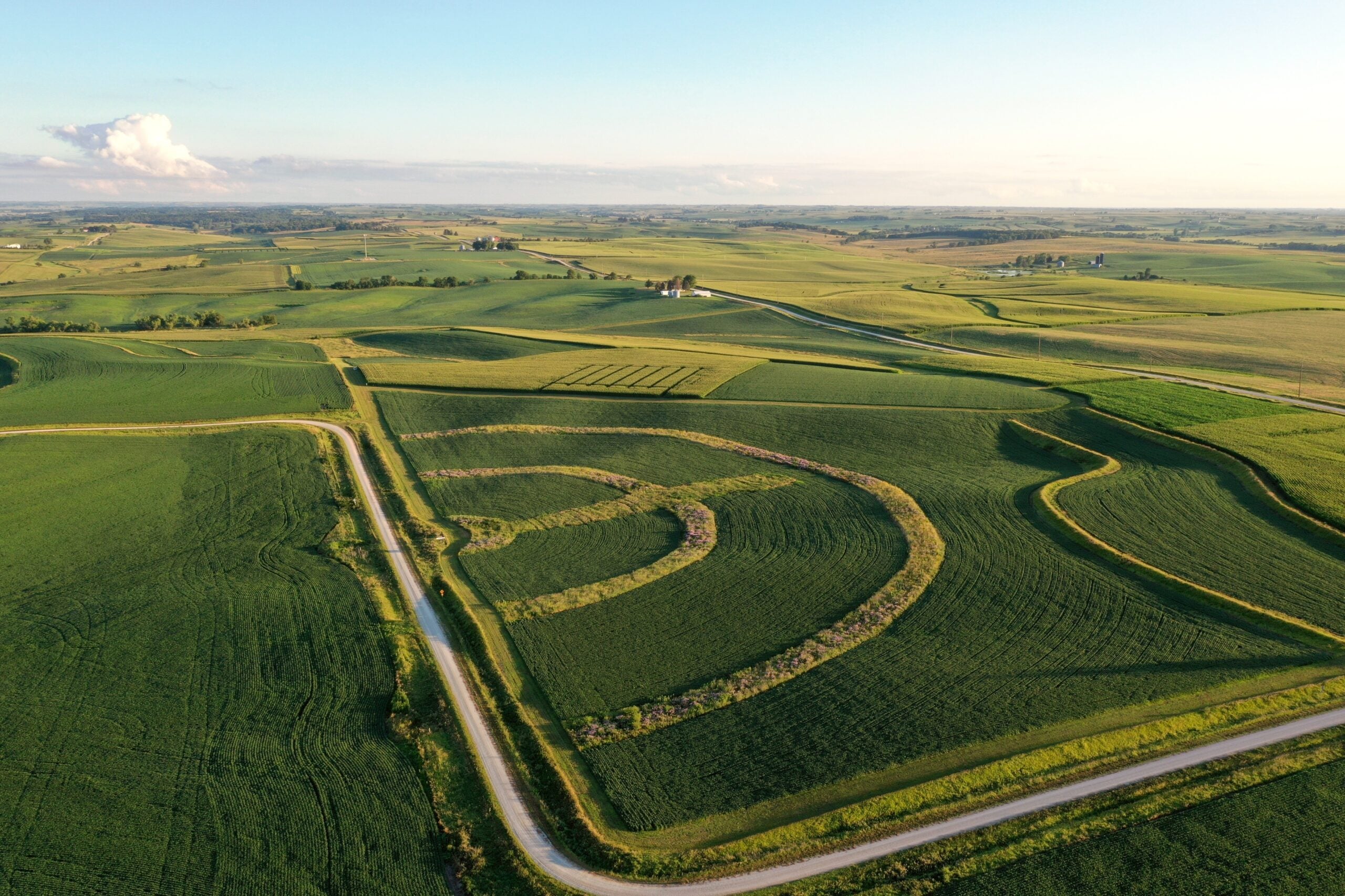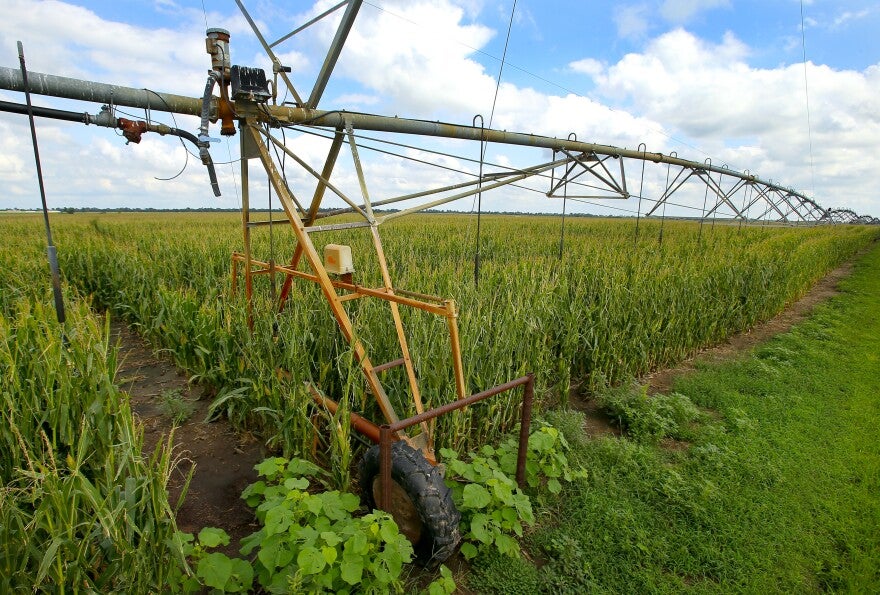Work has long been a summer staple for teenagers, whether at home on the farm, for the family business or for another employer. Since the 1940s, corn detasseling has been one of those jobs.
Like the girls in the photo above, thousands of children spend their summer days detasseling corn, walking through fields of tall, leafy corn pulling off the green seed-filled tassels from certain stalks. This removes the pollen-producing part of the plant so the corn can’t pollinate itself. Instead, the detasseled corn is pollinated by another variety of corn grown in the same field to produce hybrid corn.
The season for corn detasseling is short, lasting only about 20 days. It’s a job that tends to draw teenagers for the cash that can be made in a short period of time.
News with a little more humanity
WPR’s “Wisconsin Today” newsletter keeps you connected to the state you love without feeling overwhelmed. No paywall. No agenda. No corporate filter.
It’s hard, hot, muddy work. The corn is often above the heads of the workers. A row of corn usually has 3,000 to 4,000 plants. One detasseler can cover 15 to 20 rows per day. There are machines that can help (and that have cut down on the number of detasselers needed) but variation in heights of the plants means that no field can be completely detasseled without help.
New varieties of corn including male-sterile corn may someday eliminate the need for detasseling, but for now, the work lives on.
Wisconsin Public Radio, © Copyright 2025, Board of Regents of the University of Wisconsin System and Wisconsin Educational Communications Board.







